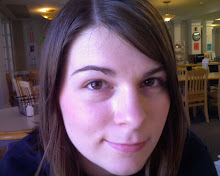Manguel covers a lot of ground, from hard facts to fleeting impressions, and there's a lot of information here to be processed! I got this book from the library but will probably buy my own copy so I can read it again and make my own notes to go back to (something I rarely do, but I feel like this book invites such scribbling).
I found this quote hilarious, from the chapter "Stealing Books." It's an inscription in a book from the library of the monastery of San Pedro in Barcelona, attempting to deter people from stealing it:
For him that steals, or borrows and returns not, a book from its owner, let it change into a serpent in his hand and rend him. Let him be struck with palsy, and all his members blasted. Let him languish in pain crying aloud for mercy, and let there be no surcease to his agony till he sing in dissolution. Let bookworms gnaw at his entrails in token of the Worm that dieth not. And when at last he goes to his final punishment, let the flames of Hell consume him for ever.Well then, if that curse doesn't cure your case of sticky-fingers, I'm not sure what will!
At the end of the chapter entitled "The Missing First Page," Manguel quotes Kafka:
Altogether, I think we ought to read only books that bite and sting us. If the book we are reading doesn't shake us awake like a blow on the skull, why bother reading it in the first place? So that it can make us happy, as you put it? Good God, we'd be just as happy if we had no books at all; books that make us happy we could, in a pinch, also write ourselves. What we need are books that hit us like a most painful misfortune, like the death of someone we loved more than we love ourselves, that make us feel as though we had been banished to the woods, far from any human presence, like a suicide. A book must be the axe for the frozen sea within us. That is what I believe.And in the last section of the book, "Endpaper Pages," in which Manguel describes an imaginary tome of The History of Reading, he writes a passage that seems to aptly pay respect to his own admiration of the individual reader:
And yet, in its apparent randomness, there is a method: this book I see before me is the history not only of reading but also of common readers, the individuals who, through the ages, chose certain books over others, accepted in a few cases the verdict of their elders, but at other times rescued forgotten titles from the past, or put upon their library shelves the elect among their contemporaries. This is the story of their small triumphs and their secret sufferings, and of the manner in which these things came to pass. How it all happened is minutely chronicled in this book, in the daily life of a few ordinary people discovered here and there in family memoirs, village histories, accounts of life in distant places long ago. But it is always individuals who are spoken of, never vast nationalities or generations whose choices belong not to the history of reading but to that of statistics. Rilke once asked, 'Is it possible that the whole history of the world has been misunderstood? Is it possible that the past is false, because we've always spoken about its masses, as if we were telling about a gathering of people, instead of talking about the one person they were standing around, because he was a stranger and was dying? Yes, it's possible.' This misunderstanding the author of The History of Reading has surely recognized.This was overall just such a fun book. Reading is usually a solitary activity, pursued in silence. But after finishing A History of Reading I realize that the community of readers, both contemporary and historical, share their experiences through that silence and simply by taking part in the legacy of letters on the page, each of us weaving our own "history of reading," contributing to a larger history of common experience, teeming with unique subtly for each of us who can relate to it.

No comments:
Post a Comment